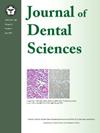Advancing special needs oral healthcare in Southeast Asia through Taiwan's New South Bound Project: Institutional feedback and sustainable strategies
IF 3.1
3区 医学
Q1 DENTISTRY, ORAL SURGERY & MEDICINE
引用次数: 0
Abstract
Background/purpose
Providing oral healthcare to individuals with special needs remains inadequate in Southeast Asia. This study evaluated the outcomes from five universities across three Southeast Asian countries participating in Taiwan's “New South Bound Special Needs Patients Oral Care Project” after its four-year implementation (2018–2021).
Materials and methods
The questionnaires distributed to participating universities collected data on dental professionals' demographics, patient characteristics, and project satisfaction. Descriptive statistics analyzed the responses.
Results
All universities reported excellent satisfaction with the project. Dental professionals’ ages ranged from 31 to 60 years, and their service experience varied from 1 to 10 years. Special needs patients receiving dental care ranged from <5 % to 30 %, predominantly from urban areas, with most universities serving older adults. Each institution developed unique education, outreach, and institutional collaboration promotion strategies.
Conclusion
The project successfully established special needs oral health programs with high satisfaction levels. It facilitated knowledge transfer, including Taiwan's expertise in domiciliary dental care. Recommendations include expanding collaboration, developing standardized curricula, implementing caregiver education, establishing monitoring systems, creating a regional network, and expanding domiciliary care training. These efforts align with WHO's Sustainable Development Goals while improving oral healthcare accessibility for individuals with special needs.
台湾新南行计划促进东南亚特殊需要口腔保健:制度回馈与永续策略
背景/目的在东南亚,为有特殊需要的个人提供口腔保健仍然不足。材料与方法向参与调查的大学发放问卷,收集牙科专业人员的人口统计、患者特征和项目满意度等数据。描述性统计分析了这些回答。结果各高校对该项目的满意度均较高。牙科专业人员年龄介乎31至60岁,服务经验介乎1至10年。接受牙科护理的特殊需要患者占5%至30%,主要来自城市地区,大多数大学为老年人提供服务。每个机构都制定了独特的教育、推广和机构合作促进战略。结论本项目成功建立了满意度较高的特殊需求口腔健康项目。它促进了知识转移,包括台湾在家庭牙科保健方面的专业知识。建议包括扩大合作、制定标准化课程、实施护理人员教育、建立监测系统、创建区域网络和扩大居家护理培训。这些努力符合世卫组织的可持续发展目标,同时改善有特殊需要的个人获得口腔保健的机会。
本文章由计算机程序翻译,如有差异,请以英文原文为准。
求助全文
约1分钟内获得全文
求助全文
来源期刊

Journal of Dental Sciences
医学-牙科与口腔外科
CiteScore
5.10
自引率
14.30%
发文量
348
审稿时长
6 days
期刊介绍:
he Journal of Dental Sciences (JDS), published quarterly, is the official and open access publication of the Association for Dental Sciences of the Republic of China (ADS-ROC). The precedent journal of the JDS is the Chinese Dental Journal (CDJ) which had already been covered by MEDLINE in 1988. As the CDJ continued to prove its importance in the region, the ADS-ROC decided to move to the international community by publishing an English journal. Hence, the birth of the JDS in 2006. The JDS is indexed in the SCI Expanded since 2008. It is also indexed in Scopus, and EMCare, ScienceDirect, SIIC Data Bases.
The topics covered by the JDS include all fields of basic and clinical dentistry. Some manuscripts focusing on the study of certain endemic diseases such as dental caries and periodontal diseases in particular regions of any country as well as oral pre-cancers, oral cancers, and oral submucous fibrosis related to betel nut chewing habit are also considered for publication. Besides, the JDS also publishes articles about the efficacy of a new treatment modality on oral verrucous hyperplasia or early oral squamous cell carcinoma.
 求助内容:
求助内容: 应助结果提醒方式:
应助结果提醒方式:


